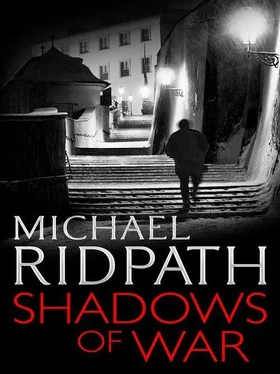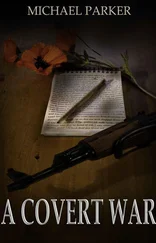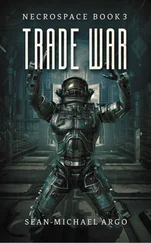‘Absolutely,’ said Conrad, wanting to shut him up. ‘Herr von Hertenberg?’
‘Ah, yes. You should go downstairs, go through the arch into the Botanical Gardens and walk on until you get to the observatory. Turn around and walk back here. If you are not being followed, Herr von Hertenberg will approach you. If you don’t see him, it’s because Herr von Hertenberg has spotted something, so return here tomorrow morning and we will have a different plan.’
He led Conrad down the stairs to the entrance to the building, and shook his hand. ‘I don’t know what you are up to, but whatever it is, I wish you luck.’
Slightly disconcerted by his brush with the professor, Conrad strolled through an arch into a courtyard, which had been turned into a formal garden of square plots of tiny hedges, in each of which were plants and labels. Given the time of year, most of the plants were brown and stunted or slumbering underground. Conrad continued on beside a large tropical glasshouse to a canal lined with sycamores. There were half a dozen people nosing around the gardens: a young couple lost in conversation with each other; three women bending down and pointing; a couple of other lone strollers. Conrad couldn’t see Theo.
He walked along the canal as far as a grand white building with domes sprouting from its roof: the observatory, no doubt. He stopped, turned around and headed back. Unlike other canals in Leiden, this one wasn’t straight, but seemed to bend, with green space on either side. Conrad speculated it was a moat around the old town.
And there was Theo, sitting on a bench, hunched in a coat. Conrad sat down next to him.
‘I’m glad to see you,’ said Theo. ‘I was worried about you when I heard what had happened at Venlo. I knew you hadn’t been captured, so at first I thought they must have shot you. You were the chauffeur, presumably?’
‘Yes, I was,’ said Conrad. ‘I slipped away. What about the man who was shot?’
‘He died. He was a Dutch officer, apparently.’
‘I know. I’m sorry to hear that. What the hell happened, Theo?’
‘Schämmel was a plant. The SD were running the operation.’
Conrad remembered that ‘SD’ stood for Sicherheitsdienst, but he was hazy about the intricacies of the Nazi security hierarchy. ‘The Gestapo?’
‘More or less. The plan was to use Schämmel as bait to try to uncover any conspirators in Germany who had been talking to the British. As soon as I found out I came back here to try to warn you, but it was too late.’
‘I did get your message, but we were just setting off for Venlo,’ said Conrad. ‘If that’s what they were up to, why did they kidnap Payne Best and Stevens?’
‘A last-minute change of plan,’ said Theo. ‘Hitler is convinced that the British organized the beer hall bomb in Munich, and that those two British agents were behind it.’
‘They weren’t,’ said Conrad.
‘We know that,’ said Theo. ‘But it’s never a good idea to tell the Führer he is wrong.’
‘I can imagine,’ said Conrad. ‘Do you know whether Payne Best and Stevens have talked?’
‘Not yet,’ said Theo. ‘But they will. The Gestapo have found a list of names on one of them. They passed them on to us: some of them we recognize as Dutch agents in Holland working for the British. But I have a question for you, Conrad.’
‘Yes?’
‘Did you ever meet Schämmel yourself?’
‘No. Thursday at Venlo would have been the first time.’
‘Which means he didn’t get any information about us from you?’
‘No.’
‘What about Payne Best and Stevens? Did they know anything about the real conspirators?’
‘No. Nothing at all. They asked me, but I refused to tell them.’
‘Good. So they don’t know anything about me?’
‘Damn!’ Conrad glanced anxiously at Theo. ‘They do. They had me followed in Leiden last time we met. Stevens asked me what I was doing talking to you. He knew who you were, he knew you worked for the Abwehr.’
Theo frowned. ‘And what did you tell him?’
‘I refused to tell him anything. Apart from to check with Captain Foley.’
‘Damn and blast!’ said Theo. ‘I knew you were the weak link.’ He looked angry. And worried. ‘Do you know if Stevens has spoken to Foley?’
‘He won’t have had a chance to,’ said Conrad. ‘All this came out on the way to Venlo.’
‘That’s something, anyway,’ said Theo.
‘Sorry,’ said Conrad. ‘Are you afraid Stevens will tell the Gestapo about you?’
‘Eventually, yes. At the moment the Gestapo are trying to get them to confess to planning the Munich beer hall bomb.’
‘Poor bastards,’ said Conrad.
‘They will talk in time.’
They fell silent as the young couple sauntered past. A pair of swans glided along the canal. It reminded Conrad a little of the Cherwell back in Oxford. He wondered about the bend in the waterway. ‘Was this a moat once, do you think, Theo?’
‘Yes. They call it the Singel. There is one in Amsterdam, you know.’
‘You are quite the Dutch expert.’
‘It’s the place to be, these days, in our business.’
‘Your business,’ said Conrad. The couple were safely past. ‘So if it wasn’t the British who planted the bomb, who was it?’
‘They’ve arrested someone at the Swiss border. We are pretty sure he is responsible. What we don’t know is who he was working for, if anyone.’
‘So it wasn’t you chaps? Canaris and Oster?’
‘Definitely not. The current favourite theory in the Abwehr is it was a set-up. The Gestapo. It was pretty extraordinary that Hitler just happened to leave ten minutes before the bomb went off. He’s calling it Providence. Interesting how he uses the word “Providence” rather than “God”, isn’t it? It’s almost as if even he can’t believe that God would be on his side.’
Conrad could feel one of Theo’s philosophical digressions coming on, but he wasn’t in the mood. ‘What about the invasion of Holland and Belgium next week? Is that still going ahead?’
‘The weather forecast isn’t good. Halder is trying to persuade Hitler to postpone.’
‘So there won’t be a coup, after all?’
‘I don’t know,’ said Theo. ‘This Venlo business has rattled them. I hope they hold their nerve. But that’s all it is, just hope.’
Conrad could sense Theo’s impatience. The year before, his friend had risked his life to stop Hitler; they both had. It was understandable that he should be frustrated by a lack of courage from the men who were supposed to lead him.
A frustrated spy. A frustrated enemy spy.
‘Who is Charles Bedaux, Theo?’
Theo, who had been staring at the swans, turned sharply to Conrad. ‘How do you know about Bedaux?’
‘Stevens told me. He said that you had been meeting him in Holland. He said he was a shady American businessman who lives in France.’
‘He is,’ said Theo.
‘Does he have anything to do with Schämmel?’ Conrad asked.
‘Nothing at all,’ said Theo.
They sat in silence for a few moments. Conrad’s instinct was to wait. Let his friend think.
‘You know I’m an Abwehr officer?’ Theo said eventually.
‘Yes,’ said Conrad.
‘So most of my job is to try to uncover British secrets and to use them to help Germany win the war?’
‘Yes,’ said Conrad again. There was something in Theo’s voice which told him to shut up and listen.
Theo sucked his lip. ‘Sometimes I wonder if that would be a good thing.’
‘What would be a good thing?’
‘That Germany win the war.’
Conrad nodded. He knew how important that statement was to Theo. Because even when Theo was at his most rebellious, even when he was declaiming socialist theories to his fellow undergraduates, his patriotism was at his core. It was his duty to serve his country, as it had been for all his ancestors.
Читать дальше












